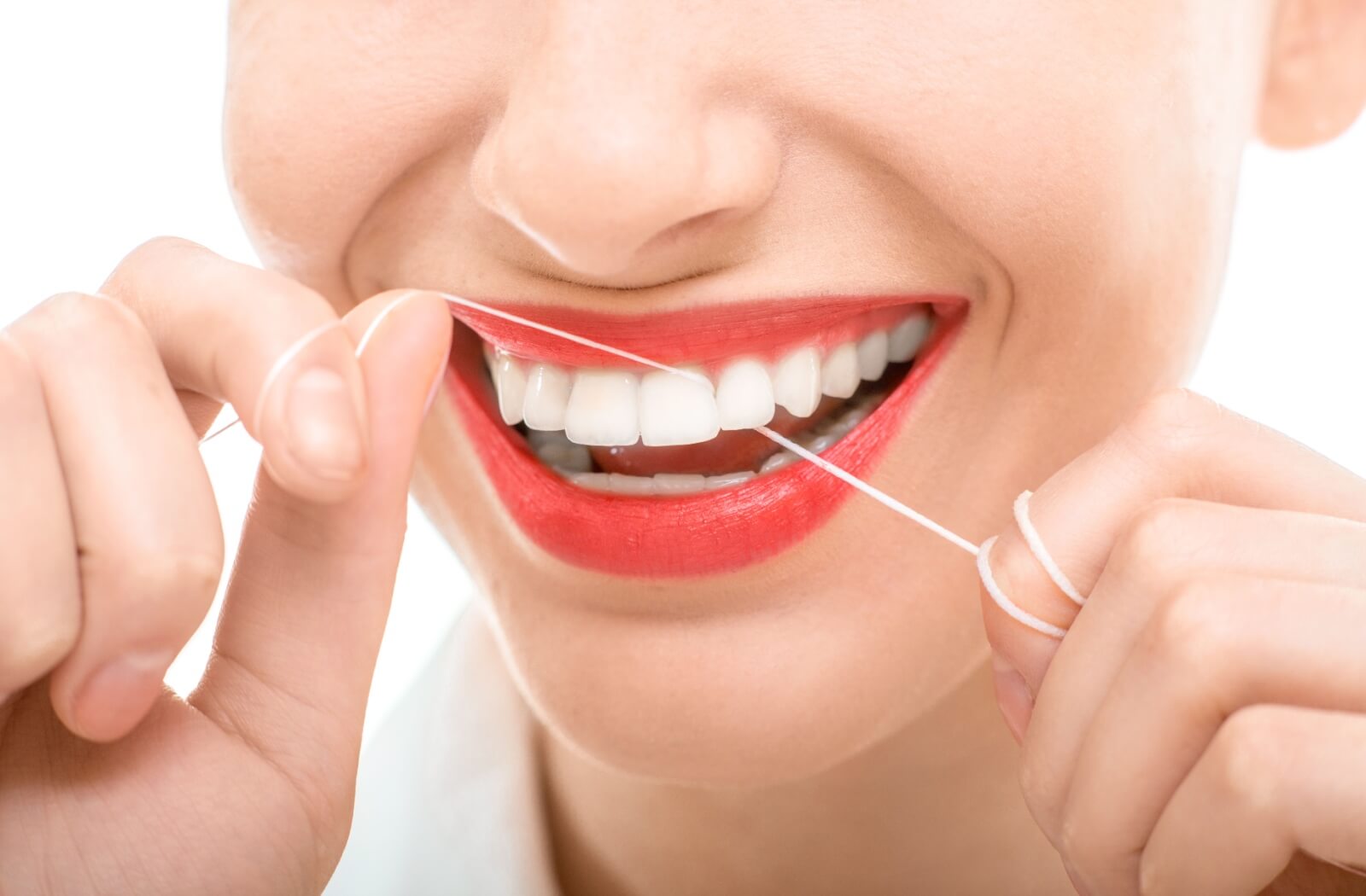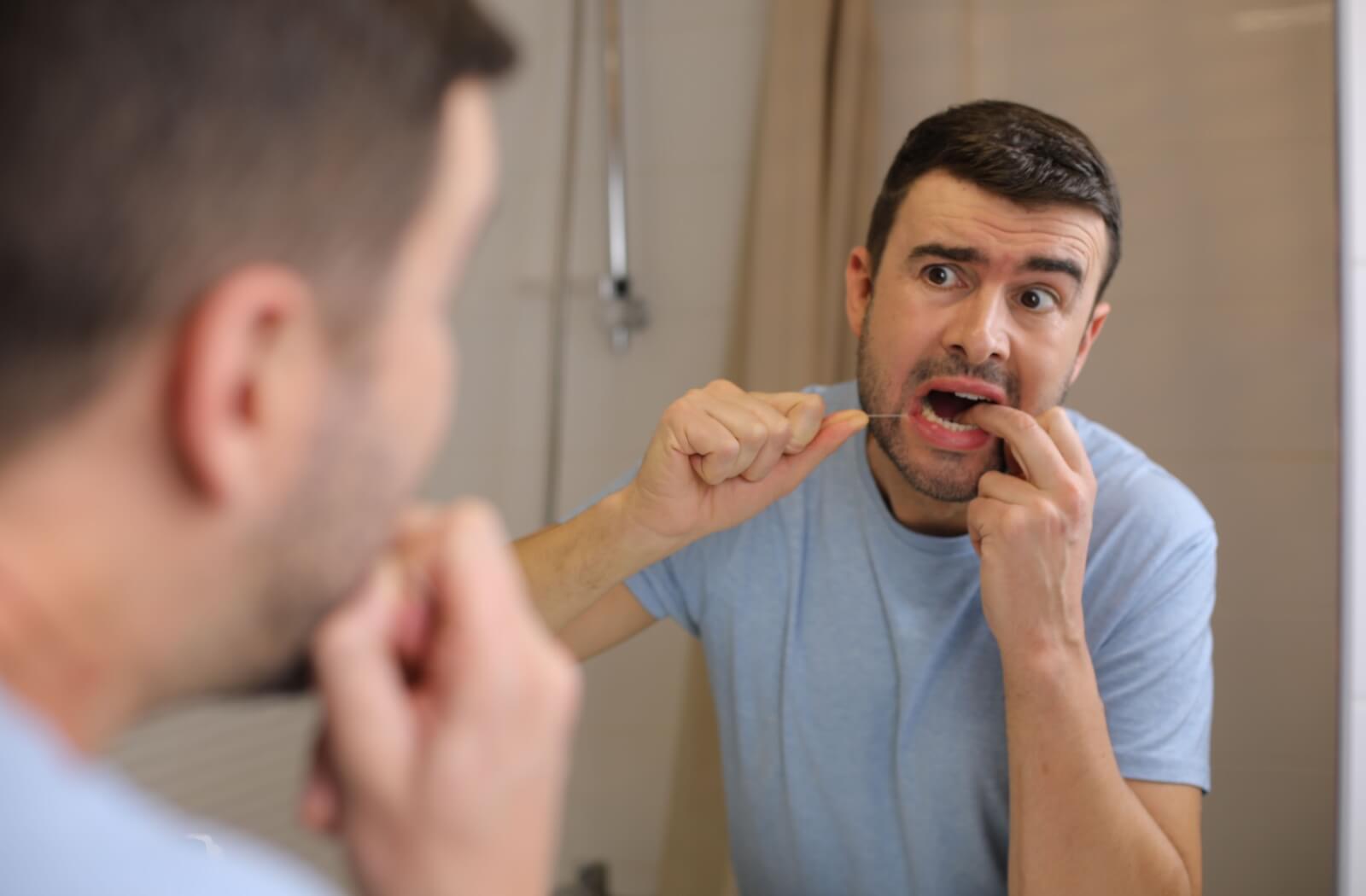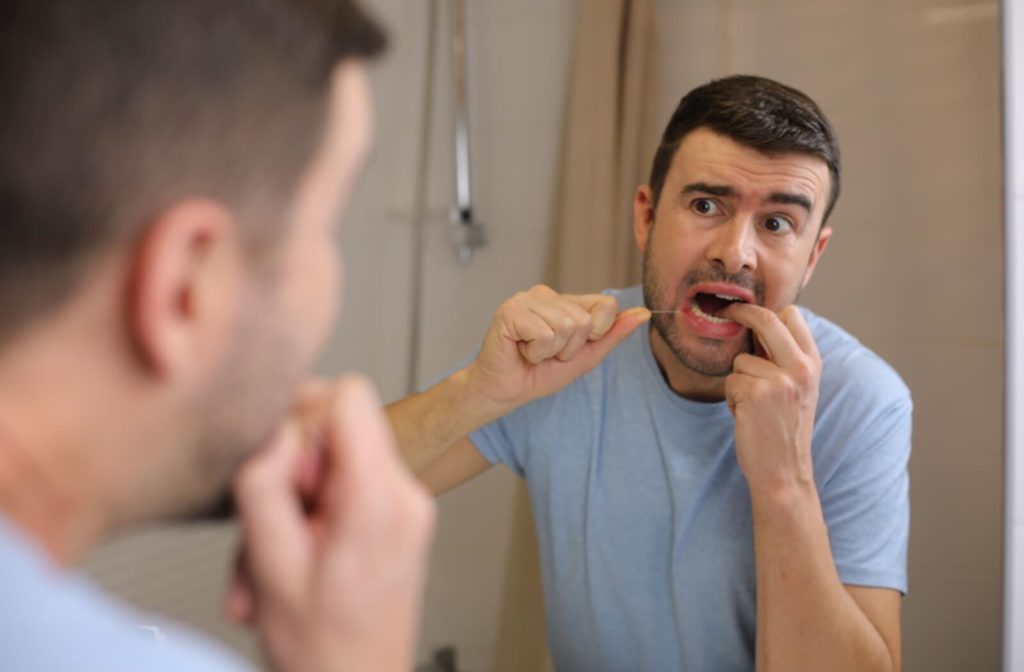Flossing is a critical part of maintaining your oral health. But when you’re trying to carefully clean your teeth and notice blood, it can be alarming at first. So why do your gums bleed when you floss, and how can you prevent this problem in the future?
Bleeding gums are often caused by poor oral care routines—either in terms of how often you do it or the technique itself. However, it can also be caused by periodontal disease, decay, and other underlying medical conditions. If you notice bleeding gums every time you floss, visit your dentist as soon as you can to find out what’s causing this problem.
Why It’s Important to Floss
Every time you eat, tiny particles of food linger in your mouth. Often, your body is capable of dealing with this; your saliva helps to wash away food debris and neutralize harmful acids. However, over time, these particles can build up and get trapped in hard-to-reach places that your toothbrush simply can’t reach.
This is where flossing comes in handy. It helps to remove those stubborn food particles, plaque, and more, helping to keep your teeth clean and strong. If you don’t floss, these particles can lead to a bacterial buildup, and this quickly starts to damage the teeth.
If left for too long, it can even turn into tartar—that dark staining sticky substance on the teeth. This is a common cause of cavities, disease, decay, and more.
Regularly flossing isn’t just about the teeth, either. It keeps your gums healthy as well! Without proper flossing, you’re compromising the integrity of your gums, leading to potential tooth loss and other severe dental issues. Simply put, flossing is an indispensable part of your oral care routine.
What Can Cause Gum Bleeding?
Even though flossing is important, it’s often overlooked. Sometimes, it’s just forgetfulness—but what about the people who deal with discomfort every time they try to floss their teeth?
Bleeding gums is a common problem that can be caused by factors such as:
- Poor oral hygiene. When plaque builds up along your gumline, it can quickly lead to inflammation and bleeding.
- The flossing technique being used. Using too much force or snapping the floss between your teeth can quickly irritate the surrounding area.
- Vitamin deficiencies. A healthy diet is the foundation of a healthy body, and when you’re missing essential nutrients, your gums can easily be affected.
However, if you’ve ever noticed other symptoms alongside your bleeding gums? You might be dealing with something called periodontal disease.
Signs of Periodontal Disease
Periodontal disease, also known as periodontitis, is a serious condition. It develops when bacteria build up in the mouth and spread to sensitive areas like the gums. This condition can cause:
- Persistent bad breath, even after flossing or brushing
- Receding gums, which can cause the teeth to appear longer than usual
- Loose teeth, as the supporting structures of the teeth weaken
Gum disease isn’t just a temporary problem, either. If you leave it unaddressed, the infection can spread deeper into your mouth. It can affect your teeth, nerves, and even your jawbone itself to have significant long-lasting effects on your overall quality of life.
Tips to Prevent Bleeding Gums
If you’ve dealt with bleeding gums in the past, you know how important it is to be proactive. To prevent bleeding gums, you’ll need to incorporate a combination of proper oral hygiene and healthy lifestyle choices.

Try to:
- Brush your teeth 2 times a day for 2 minutes at a time. Use a soft-bristled toothbrush and fluoride toothpaste to keep your teeth healthy.
- Floss once a day. Gently use the floss to reach any hard-to-reach areas, and make sure to reach between every tooth and along your gumlines.
- Use antibacterial mouthwash. This helps kill any residual bacteria in the mouth.
- Follow a balanced diet. A diet rich in fruits and vegetables is wonderful for supporting overall oral health.
- Stay hydrated, and rinse your mouth after meals. This helps wash away food particles in your mouth.
- Avoid tobacco. This is a leading cause of gum disease.
And if you’re ever unsure of what to do, reach out to your dentist. They can examine your teeth and give you personalized advice regarding how you can prevent bleeding gums in the future.
When to Visit Your Dentist
If you’re dealing with bleeding gums when you floss, it’s time to see your dentist. Don’t ignore the problem; it can be a sign that something else is going on. Instead, come talk to our team at Heritage Pointe Dental. We’re here to help, so book an appointment with us today!



